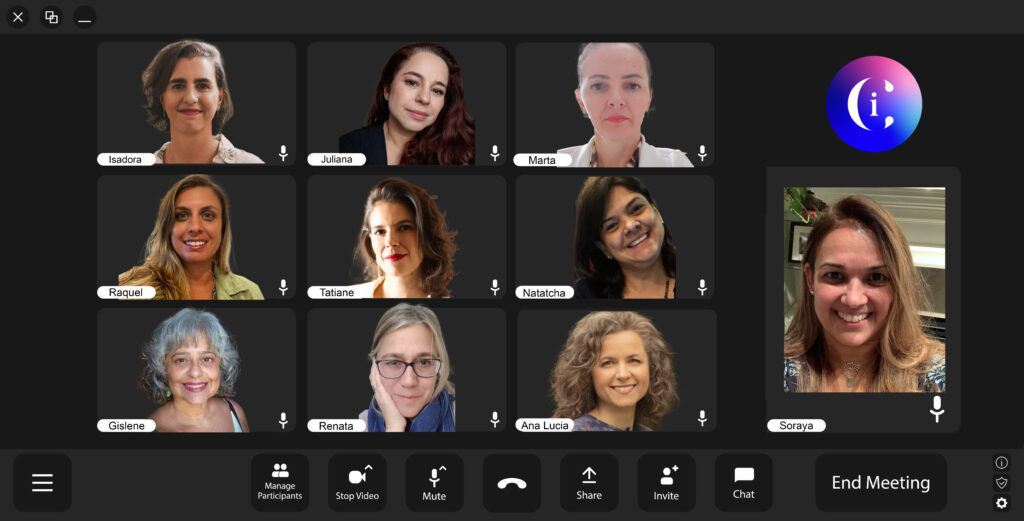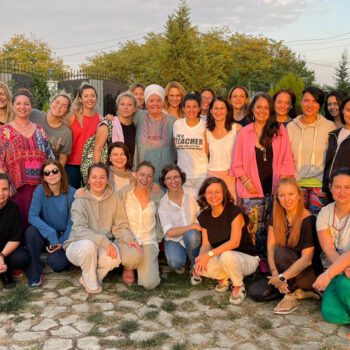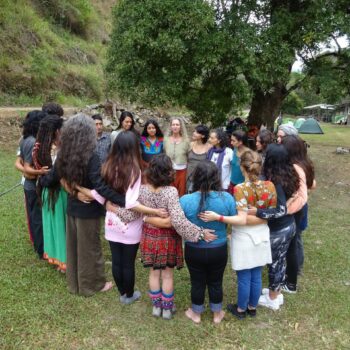In my experience, Compassionate Inquiry (CI) goes beyond merely being a method or psychotherapeutic process. It is a way of life that encourages us to observe and question our patterns and explore the origins of our behaviors. Not only this, it also provides us with tools to bring these patterns into conscious awareness. Through CI we have the opportunity to genuinely see ourselves and gain a deeper understanding of our authentic being. We can recognize the narratives we create in our minds and understand how these narratives impact our present reality and relationship with the world. CI allows us to access unconscious material from our psyche and bring it into our conscious awareness, giving us the opportunity to live a lighter, more compassionate, and profoundly self-aware life.
My experience with Compassionate Inquiry (CI) began when Sat Dharam invited a group of us to participate in the ‘beta’ CI training in 2018. I immediately accepted her invitation, not only because I admire all of her projects, but also because I have personally witnessed her relentless dedication to creating a world where people can live consciously. Taking advantage of this opportunity was an easy decision for me. However, when I reflect on it, I find it truly remarkable that a group of individuals such as ourselves, (of course inspired by Sat Dharam’s vision and guided by Gabor Maté’s brilliance) were able to develop such an innovative and groundbreaking psychotherapeutic model. I find it truly extraordinary that I got to be part of the select few who were fortunate enough to be part of the initial group receiving training to become certified Compassionate Inquiry practitioners, while simultaneously preparing another group to assume the role of facilitators.

We dedicated a year to preparing for the certification, and it was an extremely fulfilling time. I recall the weeks of working together in dyads and triads, the bi-weekly meetings and the countless hours spent watching youtube videos and attending workshops led by Gabor in Vancouver, Toronto, and Edmonton, all in an effort to comprehend his revolutionary approach. The certification process, held in April 2019, was both thrilling and challenging, particularly due to the evaluation conducted by Gabor, who would provide the ultimate approval for the official training to commence.
In the end, some of us took on the roles of facilitators, circle leaders, mentors, and certifiers. Within our group, a number of individuals strongly believed in the importance of inclusion, so we initiated a movement to ensure that CI was available to everyone, especially in nations where English was not the primary language. The objective was to promote inclusivity, fairness, and diversity. As a person of Latinx heritage and someone who identifies as a person of color, I am proud to be part of this undertaking.
The dream of inclusiveness began to take shape with the support of the Portuguese community. It was during our bi-weekly meetings, which started in 2022 with the establishment of the CI Portuguese Focus Group, that the idea of translating the CI program to Portuguese became a tangible project. These meetings have allowed us to effectively foster a dynamic group, consisting of psychologists, psychotherapists, professors, and physicians.
After being together for nearly 18 months, we were delighted to announce that, thanks to the incredible support of Sat Dharam and her exceptional team (including individuals from marketing, translation, and DEI – you know who you are), the Portuguese community worldwide would be able to study CI in their mother language in September of 2024. Special thanks to Ana Lucia, Barbara, Gislene, Isadora, Juliana, Marta, Natatcha, Raquel, Renata, and Tatiane, who have been preparing themselves to serve the Portuguese community through endless investments of their time as interns, volunteers and practitioners. Your dedication and courage are admirable. I’m sure we’re just living the beginning of a dream. A special thank you to Dr. Natatcha Romao for your dedication in editing the translations of the documents in Portuguese. Thank you very much.
Personally, when I left Brazil twenty years ago, I never expected that I would have the opportunity to reconnect with my home country through a somatic psychotherapeutic method. If someone had told me that I would be involved in this extraordinary and fulfilling endeavor which would help Brazilians to see the truth, I would have thought it was a joke or an impossible mission. I am thankful for encountering forward-thinking individuals who believed in and endorsed this work, driven by the belief that inclusion has the power to heal trauma.




Comments are closed.